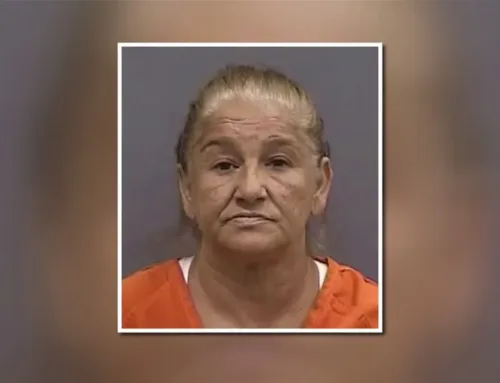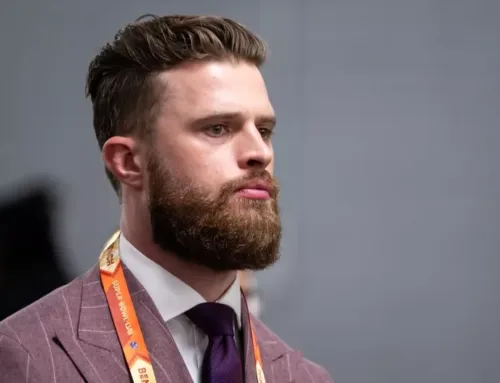Canada will expand its Russia sanctions to target more Putin-friendly oligarchs and businesses, but Deputy Prime Minister Chrystia Freeland warns Canadians there will be an economic price for these punitive measures in support of Ukraine.
“I have to be honest with Canadians that there could be some collateral damage in Canada,” Ms. Freeland told reporters Tuesday.
She said she discussed this possibility with Group of Seven finance ministers Tuesday. “We said in order to be really be effective, in order to really have an impact, we are going to have to be prepared for there to be some adverse consequences for our own economies.”
U.S. Treasury Secretary Janet Yellen said Tuesday the G7 economies will convene a task force to focus on freezing and seizing assets of key Russian elites as it aims to put further pressure on Russia.
The move “will inflict financial pain on the powerful individuals surrounding [Russian President Vladimir] Putin and make clear that no one is beyond our collective reach,” Ms. Yellen said in a statement.
On Tuesday, Canada announced it’s banning Russian-owned and registered ships from Canadian ports and waters.
Transport Minister Omar Alghabra said the ban will take effect this week under the Special Economic Measures Act.
“We are taking steps to close Canadian ports and internal waters to Russian-owned or registered ships. The Government of Canada condemns Russia’s invasion of Ukraine, and we will continue to take action to stand with Ukraine,” he said in a statement.
Mr. Alghabra’s department said Ottawa was tracking three Russian-flagged vessels off Canada’s East Coast, one of which is a cargo vessel.
Canada banned Aeroflot, Russia’s flagship carrier, from Canadian airspace Sunday – though an Aeroflot plane violated the ban just a few hours later.
The Trudeau government, however, continues to resist calls from opposition parties and the Ukrainian Canadian community to drop a visa requirement for citizens of Ukraine trying to flee the war.
Liberal MPs on the House of Commons immigration committee voted against a motion calling on Canada to allow visa-free travel for Ukrainians heading to Canada. The motion passed with the support of the Conservatives, NDP and Bloc Québécois.
NDP immigration critic Jenny Kwan urged the government to drop the requirement. Canada has granted citizens of more than 60 countries and jurisdictions visa-free access to this country. The European Union in 2017 dropped its visa requirement for Ukrainians.
“I have heard from constituents who have family members back in Ukraine that have had their visa applications rejected. Canadians are feeling helpless and frustrated because they can’t get their family members to safety,” Ms. Kwan said. “By failing to remove all the bureaucratic red tape the government is leaving people stranded in a terrifying situation.”
Immigration Minister Sean Fraser declined to address the visa requirement for Ukrainians in response to Conservative Party queries in Question Period on Tuesday, but promised Ottawa will unveil additional support to help them reach Canada. “In the very near future, we will have new measures to welcome more Ukrainians who are seeking safety as they flee this war. Canada will be there for Ukraine in its time of need.”
Canada also announced more non-lethal aid for Ukraine as Kyiv remains under siege from Russian forces.
Defence Minister Anita Anand said Canada is sending 1,600 flak jackets and 400,000 meal packages to Ukraine. She said Ukraine had specifically requested these items.
Ms. Freeland said Canada is also scrutinizing the holdings of wealthy Russians and Russian companies in this country.
“We are looking carefully at the holdings of all Russian oligarchs and Russian companies inside Canada. We are reviewing them and everything in on the table,” she told reporters.
She had been asked about the Canadian holdings of Russian-Israeli billionaire Roman Abramovich and said there will be further economic measures announced in coming days.
Mr. Abramovich is No. 1 on a list of 35 people drawn up by allies of jailed Kremlin critic Alexey Navalny. This list of proposed targets names wealthy Russians, government officials and business leaders whom Mr. Navalny’s supporters say should face sanctions to put pressure on Mr. Putin.
To date, he has not been targeted with sanctions by Western countries. On Monday, Reuters reported that the businessman had accepted a Ukrainian request to help negotiate an end to the Russian invasion of Ukraine.
Mr. Abramovich is the owner of England’s Chelsea soccer club and a significant shareholder in steelmaker Evraz PLC, which through a subsidiary has steel-production facilities in Canada.
The billionaire owns more than 28 per cent of the shares of Evraz, according to the company’s website. Its wholly owned subsidiary Evraz North America operates steel-production sites in the United States and Canada, including locations in Regina, Calgary, Camrose, Alta., and Red Deer, Alta.
Evraz North America supplied 58 per cent of the steel being used to build the $21.4-billion Trans Mountain expansion project, which is twinning the 1,150-kilometre Trans Mountain pipeline carrying petroleum to British Columbia from Alberta. The last pipe deliveries were completed in the second quarter of 2021, Trans Mountain said Tuesday.
What might Canada target next? The Navalny 35 list offers an indication. Canada has only targeted four on the list while the European Union has targeted 16. In the past Canada has caught up to its allies in subsequent sanction announcements.
Ms. Freeland said the economic fallout from Western sanctions against Moscow will hurt Europeans more than Canadians. But she expressed confidence that Canadians understand the “stakes of this fight.”
“I believe Canadians understand that we need to be prepared to do things that are hard, to do things that are costly to avoid something that would be much more damaging to Canada, which is a successful occupation by Vladimir Putin of Ukraine with all the consequences which that would have,” the Deputy Prime Minister said.




